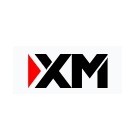Brokeri CFD | Best CFD Brokers 2025
| Broker | Trimiteți recenzia | Postări pe forum | Regulament | Evaluare generală | Depunere minimă | Efect maxim de sporire | Metode de finanțare | Platforme de tranzacționare | Protecție soldul negativ | Asigurare de depozit reglementară | Valuta contului | Model de execuție | Cursuri de active | Limbi | 3fde5928-81e1-4843-8601-d79c88429985 | ||
|---|---|---|---|---|---|---|---|---|---|---|---|---|---|---|---|---|---|
 IC Markets
IC Markets
|
Trimiteți recenzia | 0 |
Australia - AU ASIC Cipru - CY CYSEC Seychelles - SC FSA |
5,0
Excelent
|
200 | 1000 |
MT4
MT5
WebTrader
cTrader
TradingView
|
ECN
ECN/STP
STP
|
8ecf9587-378d-4983-923c-22315c213264 | https://icmarkets.com/?camp=1516 | |||||||
 Tickmill
Tickmill
|
Trimiteți recenzia | 0 |
Cipru - CY CYSEC Regatul Unit - UK FCA Africa de Sud - ZA FSCA Emiratele Arabe Unite - AE DFSA Seychelles - SC FSA |
4,8
Excelent
|
100 | 1000 |
MT4
MT5
WebTrader
|
EUR
GBP
PLN
USD
|
STP
STP DMA
NDD
|
53bbb9fb-9ba9-4554-b6ea-a844379eb53b | https://tickmill.com?utm_campaign=ib_link&utm_content=IB42043247&utm_medium=Tickmill&utm_source=link&lp=https%3A%2F%2Ftickmill.com%2F | tickmill.com/eu tickmill.com/uk | |||||
 HFM
HFM
|
Trimiteți recenzia | 0 |
Cipru - CY CYSEC Regatul Unit - UK FCA Africa de Sud - ZA FSCA Emiratele Arabe Unite - AE DFSA Seychelles - SC FSA Kenya - KE CMA |
4,8
Excelent
|
0 | 2000 |
MT4
MT5
WebTrader
|
EUR
JPY
USD
ZAR
NGN
|
MM
|
c68ffb3d-f7a3-4189-b511-6098f6105caa | https://www.hfm.com/sv/en/?refid=13943 | ||||||
 XM (xm.com)
XM (xm.com)
|
Trimiteți recenzia | 0 |
Australia - AU ASIC Cipru - CY CYSEC Belize - BZ FSC Emiratele Arabe Unite - AE DFSA |
4,7
Excelent
|
5 | 1000 |
Bank Wire
China Union Pay
Credit/Debit Card
Neteller
Skrill
|
MT4
MT5
WebTrader
|
MM
|
Futures
Valută
Indici
Petrol / surse de energie
Metale
Produse agricole de bază (cafea, zahăr...)
|
48bdaa02-02cb-484d-9478-e8862f2e6120 | https://www.xm.com/gw.php?gid=222661 | xmglobal.com xm.com/au | ||||
 Axi
Axi
|
Trimiteți recenzia | 0 |
Australia - AU ASIC Regatul Unit - UK FCA Emiratele Arabe Unite - AE DFSA |
4,5
Excelent
|
0 | 500 |
MT4
WebTrader
|
STP
|
1fd3afb8-0e18-4d2f-ac23-7e1b3777b3d0 | https://www.axi.com/?promocode=817857 | axi.com | ||||||
 FP Markets
FP Markets
|
Trimiteți recenzia | 0 |
Australia - AU ASIC Cipru - CY CYSEC Mauritius - MU FSC Africa de Sud - ZA FSCA Seychelles - SC FSA |
4,6
Excelent
|
100 | 500 |
cTrader
MT4
MT5
WebTrader
|
ECN/STP
|
ddd84cfc-a89b-4930-9df6-e41fe304c4cd | https://fpmarkets.com/?fpm-affiliate-utm-source=IB&fpm-affiliate-pcode=14908&fpm-affiliate-agt=14908 | www.fpmarkets.eu www.fpmarkets.com/int | ||||||
 Admirals (Admiral Markets)
Admirals (Admiral Markets)
|
Trimiteți recenzia | 0 |
Australia - AU ASIC Cipru - CY CYSEC Regatul Unit - UK FCA Seychelles - SC FSA Iordania - JO JSC |
4,5
Excelent
|
100 | 1000 |
MT4
WebTrader
MT5
|
MM
|
3821cf56-3abd-4199-b24f-bafea57f815c | https://cabinet.a-partnership.com/visit/?bta=35162&brand=admiralmarkets | admiralmarkets.com admirals.com partners.admiralmarkets.com |
CFD (Contracts for Difference) enable investors, even with small deposits, to trade several financial instruments, without owning the underlying asset. This also means that investors can speculate on the price of several asset classes and mitigate the risk of holding the asset, in case of sudden market depreciation.
- CFDs enable traders to make a profit on the price difference between the trade’s entry and exit levels.
- CFDs brokers allow traders to go long and short on several instruments.
- Brokers offer CFDs trading on margin, meaning, an account with 1,000 currency units can execute a 10,000 units trade with a 10% margin.
- CFDs trading is popular in forex, shares, indices and cryptocurrencies.
In this article, we will talk about the pros and cons of CFDs trading. We will try also to help you select one of the best CFD brokers in 2025, regulated and with the overall rating. The overall rating is how our industry experts rate each broker for its trading conditions, pricing and regulatory status. But first, how does a CFD broker work?

Trading on financial products was once reserved to money movers, banks and other institutional traders. With the offering of CFDs trading, this exclusive club has become available also to the retail industry.
Even with a small initial deposit, retail investors can open positions on different assets, from forex to commodities. It is also possible to buy/sell shares of big corps, and emerging FinTech’s, or even trade the volatility of popular cryptocurrencies. All that, without needing a digital currency wallet or stocks dealing desk, and without owning the underlying asset.
- Brokers providing CFDs trading, via different platforms, allow investors to bet on an asset’s future price. The profit, or loss, will be the difference between the entry and the exit price.
For example, a trader thinks the GBP/USD quote, currently at 1.36900, might be going up this week, after passing the 1.37200 resistance level, and reach the next resistance level at 1.37800.
On the broker’s trading platform, the trader places a buy stop order at 1.37250 with a take-profit at 1.37800 (55 pips). As a cautious trader, the stop-loss level for this trade will be 1.36700 (also 55 pips). The order is filled by the CFD broker.
Now, two things will happen while trading the pair. The GBP/USD quote reaches 1.37800, the trade is closed and the trader makes 55 pips profit. Or, the GBP/USD quotes drop to 1.36700, hitting the stop-loss level, and the trader makes a 55 pips loss.
What CFDs can I trade?
The above example can be applied to a vast range of asset classes, commonly available for trading with an online CFD broker:
- Forex pairs (EUR/USD, USD/CAD, GBP/JPY, etc.)
- Cryptocurrencies (Bitcoin, Ethereum, Litecoin, etc.)
- Shares (Netflix, Amazon, Tesla, etc.)
- Commodities (Gold, Silver, Oil, Coffee, Cotton, etc.)
- Indices (DAX, US 30, FTSEMIB, etc.)
- ETFs (Exchange-Traded Fund)
- Options (Derivative contracts)
As mentioned before, the main difference between trading on the stock exchange and CFDs trading is the fact that the trader will never own the underlying asset. And this same principle is applied to all asset classes available via online CFD trading.
Let’s see the foremost differences in trading, for the main asset classes, with and without a CFDs broker:
| Asset Class | Exchanges/Markets | With a CFD Broker |
|---|---|---|
| 💲 Forex |
Exchange one currency for another No rollover charges |
Trade the price difference Rollover charges |
| ₿ Cryptocurrencies |
Exchange one crypto for another Crypto wallet needed |
Trade the price difference No need for a crypto wallet |
| 📈 Equities |
Own the equities Receive dividends Short-selling not allowed No rollover charges |
Trade the price difference Receive dividends Short-selling allowed Rollover charges |
| 🌽 Commodities |
Own the contract No rollover charges Physical delivery of goods |
Trade the price difference Rollover charges No physical delivery of goods |
What characterizes a CFD broker?
Now that we’ve cleared what is a CFD and how CFD brokers work, it’s time to learn what are their attributes. With literally hundreds of online brokers offering similar trading conditions, it might be hard to choose your next trading partner. In this next part of our guide, we will illustrate what key features traders should look for on a CFDs broker.

From the image above we would like to make a parenthesis here and get your attention to the second point “Trading on leverage and margin”.
Online CFD brokers offer retail investors a gateway to the financial markets. But above all, the financial muscle needed to open positions, via leveraged trading.
Leverage, in CFD trading, allows retail traders to open larger positions, using less money (available margin). Therefore it can greatly amplify both profits and losses. Leveraged trading is also called margin trading. And as some say...
"Leverage is a double-edged sword that can boost potential profits... and losses."
- For example, going long on the EUR/USD pair at 1.0000, with no leverage, to make a total loss the price must go to zero. Or to 2.0000, to double the investment. When trading CFDs using a 100:1 leverage ratio, a price movement of 100 times less will produce the same profit or loss.
Since 2018, regulated brokers in Europe are obliged to display on their websites the percentage of traders losing money. And in some cases, the percentage of traders with a complete loss of capital. The numbers are not very encouraging. Between 77-91% of retail investor accounts lose money when trading CFDs, forex, and spread betting.
So, even before looking for an online CFDs broker, please consider the importance of understanding how leverage and margin works. Perhaps a quick visit to our What is Leverage in Forex article could help you with the right answers.
What are the best brokers key features?
CFDs trading is currently a sizeable portion of the world's largest financial market, the foreign exchange market.
Retail investors, lured by the prospective gains on offer, and convinced that trading the markets is an easy task, are the fastest-growing segment. Thus, no wonder the growth of online brokers offering CFDs trading. But not all brokers are the same. The key features to look for on a reputable CFDs broker are:
| Key Features | Best CFD Brokers | Other CFD Brokers |
|---|---|---|
| Client Money Held on Segregated Accounts | ||
| Investor Compensation Fund | ||
| Negative Balance Protection | ||
| Trading Education (webinars, market analysis, etc.) | ||
| Competitive Pricing (spreads, commissions, deposit and withdrawals fees) | ||
| Efficient Customer Support |
Final considerations
Finding an online CFDs broker with a flashy website, promising 0 pips spread on major pairs, and low commissions is very easy. And one might be tempted with opening an account.
But if that online broker does not make clear what supervisory body (if any) regulates their company and activities, if the most basic investor safety mechanism (Negative Balance Protection) is not offered, then our suggestion would be a pass.
To cut through the hundreds of brokerage choices and options out there, it might be helpful to undertake the process of elimination. To find out more take a quick look at our How to Find the Best Forex Broker: 7 Key Factors to Consider complete article. In this article, we illustrate the criteria to help you choose a reputable CFD broker.

